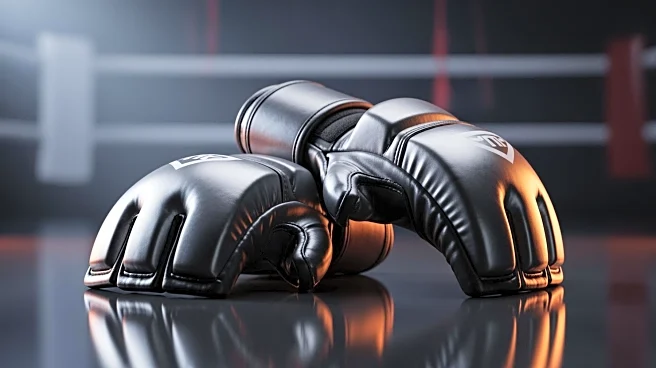What's Happening?
Tracy Cortez, ranked #8 in the UFC women's flyweight division, is set to face Erin Blanchfield, ranked #4, in a rematch at UFC 322. Cortez previously defeated Blanchfield in 2019 under the Invicta FC banner
and aims to improve her record to 2-0 against her opponent. Ahead of the fight, Cortez has been featured in Threads' Oddly Wholesome Post-Fight Rituals series, where she discusses her unique ways of unwinding after fights. Cortez, who recently won against Viviane Araujo, shares insights into her life outside the octagon, including her adrenaline-fueled activities like off-roading and skydiving, and her strong family support system.
Why It's Important?
The upcoming rematch between Cortez and Blanchfield is significant for the women's flyweight division rankings. A win for Cortez could propel her higher in the rankings, potentially leading to more high-profile fights and opportunities within the UFC. The focus on Cortez's post-fight rituals highlights the importance of mental health and personal well-being for athletes, offering fans a glimpse into the personal lives of fighters beyond their professional personas. This narrative can influence public perception and support for athletes, emphasizing the balance between professional demands and personal life.
What's Next?
As Cortez prepares for her rematch with Blanchfield, the outcome of UFC 322 could have implications for future matchups in the women's flyweight division. A victory for Cortez may lead to her challenging higher-ranked opponents, while a loss could impact her standing and future fight opportunities. The UFC and fans will be closely watching the fight, as it may set the stage for future title contention within the division. Additionally, Cortez's involvement in the Threads series may continue to shape her public image and fan engagement.
Beyond the Headlines
Cortez's participation in the Threads series underscores the evolving role of social media in sports, where athletes can connect with fans and share personal stories. This trend reflects broader changes in how athletes manage their public personas and engage with their audience, potentially influencing sponsorship and media opportunities. The emphasis on personal rituals and mental health also highlights a growing awareness of the psychological aspects of sports, encouraging discussions around athlete well-being and support systems.









